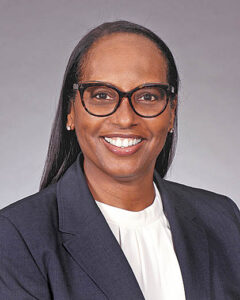Guest Commentary | Help multicultural organ donations match the need

Just one donor can save up to eight lives and improve the lives of 75 others. If you have ever considered becoming an organ donor but hesitated, you should know that your decision can help save lives.
Multicultural communities are disproportionately affected by certain medical conditions such as diabetes, high blood pressure and heart disease, which can contribute to organ failure and lead to the need for organ transplantation. African Americans, for example, experience kidney failure at three times the rate of white Americans.
Yet the rate of multicultural organ donation does not match the need within our communities. In Florida, African Americans represent nearly 15% of the population, but only account for 6% of registered organ and tissue donors.
That gap matters not because donors and recipients must always share the same racial or ethnic background, but because certain biological markers that influence compatibility (such as blood type, HLA antigens and other medical factors) can be more common within shared ancestry. The more these factors align, the better the odds that an organ is accepted by its recipient.
In this season — September kicks off Hispanic Heritage Month and August was National Multiethnic Donor Awareness Month — I want to educate and shine an extra spotlight on the ongoing need for more multicultural organ donors. In addition to the recent negative press regarding donation, there are longstanding misconceptions in multicultural communities regarding organ donation. As a person of color, I understand the history behind them. But as an organ recovery surgeon who happens to be Black, I feel a responsibility to step up and provide information, so that our community can make educated decisions when it comes to end of life care and the ability to save lives.
When you know better, you should do better. But to get to where we need to be, we must meet people where they are and gain their trust. I recently joined a local initiative led by Hillsborough County Commissioner Gwen Myers to engage multicultural pastors in conversations about organ donation. We had heart-to-heart dialog, answered the tough questions, and dispelled myths that have perpetuated for years. Those kinds of grassroots conversations are the beginning of what it takes to rebuild trust, close the registration gap and ultimately save more lives.
Progress is also happening at the national level. In 2022, the National Academies of Sciences, Engineering and Medicine released a landmark report titled Realizing the Promise of Equity in the Organ Transplantation System. Commissioned by Congress, the report identified areas of disparity and laid out bold recommendations to make the system more fair, transparent and accountable.
Across America, more than 105,000 men, women and children await a life-saving organ transplant, including over 5,100 patients in Florida. The need for organ transplants is highest among the nation’s multicultural communities, which make up about 60% of the U.S. transplant waiting list.
I encourage you to educate yourself as people are dying while they await organ transplants. Donation does not cost the donor or their family money. It does not delay burial or prevent an open-casket funeral. Organ donation never occurs until all lifesaving efforts have been exhausted. And it gives donor families the opportunity to find a bright spot amid tragedy by allowing their loved one’s story to live on through organ recipients.
If you are ready to consider the ultimate gift, I invite you to learn more or register to become an organ donor. You also can register when renewing or receiving your Florida driver’s license.
Let’s make sure our communities are educated and part of the solution. Together, we can save lives.
Dr. Jacentha Buggs is an organ recovery surgeon and associate medical director with LifeLink of Florida. She was the first African American to complete the General Surgery Residency at the University of South Florida before becoming the first Transplant Fellow to complete the Transplant Fellowship with LifeLink® HealthCare Institute (now Tampa General Medical Group).

